|
Here is a list of reasons why books make the best gifts. (This is not self-serving. I don't mean my books. I mean books in general.)
1) They are long lasting. It takes on the order of, say, ten or fifteen hours to read a book during which whole time your loved one is thinking in the back of her head how much you must love her for getting her such a lovely gift. Then, after she's finished, it will sit on her shelf in her living room or her bedroom and remind her of you. 2) They are personal, intimate even. When you get your loved one a book he really loves, he not only enjoys the book, he feels full of warm, fuzzy feelings that you picked it for him, that you knew him so well you knew how much he'd like it, that you think so highly of him you matched him up with this really great book. 3) Don't know how to pick the book that will result in #2 above? Books have a solution to that problem too. Walk into, say, the Gap and describe your loved one's personality and interests to the people working there, and they will not be able to pick out a sweater well suited to your loved one. Walk into a bookstore and do the same, and the people there absolutely will. Today, as part of Small Business Saturday, authors will be visiting local independent bookstores across the country to help you pick the perfect book for your loved one. (Find one near you with this handymap and/or google your favorite bookstore to see what they have going on today.) They aren't selling their own books, you understand; they are going to meet you, listen to you talk about your loved one, and offer the perfect book. (Authors tend to be very well and widely read, and this is our superpower. We are like Santa in this way.) That way you get to say to your loved one not only have I given you this great book but it was picked out personally for you by [insert name of fabulous author here]. 4) Even if -- perhaps, especially if -- your loved one owns some kind of e-reader, a book still makes the perfect gift. Now it's retro and nostalgic (sort of like the holidays themselves, especially for those of you still eating Chex Mix)(which should be everyone because Chex Mix is awesome). Now books stand out. Now your loved one will say, fondly, "Oh, I remember reading real books. How lovely." Personally, I like to go back and forth -- one ebook, one paper, one e, one paper. Your loved one will love having an actual object to unwrap and hold and smell and flip through and examine the cover of and then, finally, read and reread and look at and remember. 5) As regular readers will recall, books make great Christmas trees. Here's ours from last year. You can't do this with an ebook, my friends. As I have discussed -- here? elsewhere? mostly in my own brain? -- the beginning stages of novel-writing look a lot like wandering around the house aimlessly. Followed by writing. Followed by revision. Followed, only then, by obsessing about language. Novel-writing is long -- for me, in the early stages, language-matters are indulgences that interfere with the work that must be done: research, writing, revision, and wandering around the house. But that obsession with language is hard to let go of. During early-stage novel writing, it comes out in other ways. Example from some crackers I was eating this weekend: "Natural Flavor with other natural flavor." Natural flavor with other natural flavor? Look, I hate to be a graduate student about this, but: a) Can I get an S? Natural flavorS with other natural flavorS. b) Or articles? A natural flavor with another natural flavor might also work. c) What does this even mean? Are we talking about flavor or ingredients? Flavor means taste. Is their point that these crackers taste like two things? Crackers and sweet onions? Sweet potatoes (their main ingredient which is why I bought them. I am a sucker for sweet potatoes) and rice? Salt and crunchy? Bananas and bologna? Flavor and flavor? d) Or do they mean ingredients? Because flavor does not mean ingredients. But that does seem to be what's implied here. I chose these, in fact, because their ingredient list was short, recognizable, and non-chemical. These crackers contained actual foods on their ingredient list, foods such as sweet potatoes and rice. But then you'd think the copy might read: Sweet potatoes with rice. Instead of natural flavor with other natural flavor. e) Flavor means taste. All flavors are natural. Their cause might well be artificial, but their taste on the tongue is natural. And natural. f) There are only two reasons makers of crackers put copy on their boxes: to make me buy them or to make sure I don't sue them for having done so. I honestly can't imagine which this is. And then check this out: This sign is in the women's locker room where my kid takes swim lessons. I can only assume this is vandalism, a joke, but if so it's awfully well done -- I couldn't see any scratched out or scraped off letters. It is, in any case, someone's intention, be it the makers and hangers of the sign or someone with a pretty good sense of humor. So I ask you:
a) Is the final word here meant to be gender? Because at the very least they probably mean sex. Unless b) they mean gender in which case bravo and more power to 'em though I'm not sure that requires signage at that point. Maybe this is too long: "Children six years [of??] age and older must use the locker room which best aligns with their gender performance always acknowledging that that performance is culturally imposed and interpreted, subject to change, and may lie outside the two (falsely dichotomous) locker room options herein presented." c) Or maybe it's literal where end=genitalia. Which I love. d) Or maybe it bespeaks everyone's eventual demise. We don't want to think about it in very young children, but by six, you're old enough to consider that someday we must all shuffle off this mortal coil. Another too long sign: "Those whose off-shuffling will be in a car, a body of water, a hospital room, a mountain slope, or a dog park must use the women's locker room. Those for whom it will be a bedroom or other room in a private home, a yoga studio, a glacier crevasse, a boat, a ballpark, or a movie theater must use the men's locker room. We know you don't know, but guess." I am totally fascinated/horrified by translation. It puzzles me completely. It is maybe one of the most American things about me that I speak only a little bit of one language besides my own -- and not well. I wish for other languages. I long for them. For the usual reasons -- they would make me a better citizen of the world; they would make me a better and more welcome traveler -- as well as the literary ones: I want to read Anna Karenina in Russian,Inferno in Italian, One Hundred Years of Solitude in Spanish. The world is such a small place and growing smaller and closer every day. Barriers tumble down. Technology brings us all closer together. So much of our experience of the world happens beyond language anyway. Blah blah blah. I don't buy it. Translation seems impossible to me. Miraculous, impressive as hell, and impossible. Let's talk about Dante's Inferno. It's a poem. In Italian, it rhymes. When you translate it, do you translate it literally word for word so that you get the exact plot and images and individual words Dante chose? Or do you translate it so that it rhymes at the sacrifice, sometimes, of much of the above? Before you answer, consider that much of Italian rhymes, much more than English does. So rhyming poetry sounds different and means differently to Italian ears than it does to English speaking ones. This kills me. "Um, I found a head. Does anyone know whose head this is?" "It's yours you idiot." "Really? Bummer. Man, I have a great body though, huh? Without my head, I look years younger. Anyone want it? Free head?" Another example is this: when Sam meets Meredith in Goodbye For Now, she says her friends call her Max, and he says, "Not Merde?" This is a joke. Because "merde" means "shit" in French. He calls her Merde throughout the rest of the novel because, to English-primary ears, Merde sounds like a cute term of endearment rather than a profanity meaning excrement. But what to do when you translate the book into French? My husband and I fantasized that they might change Meredith's name to Shitella or Poopina throughout in order to preserve the joke and its meaning/feeling/essence. (Right? Her name is Poopina, and the first time they meet he calls her Poop? Cute name if it doesn't mean, you know, "poop" to your ears. These are the things that amuse in my household). But instead, the very tasteful and talented French translator added a footnote the first time Sam calls her Merde which notes that it's in French in the original and otherwise has Sam call her Meredith. Which is perfect. Translation: The author is gross. I, the translator, am not gross. It is her. Not me. Cursing is a translation problem even in one's own language. I'm a curser. I curse. I curse at home. I curse in print. To my ears, it does not sound crude or dirty or especially edgy. I grew up with cursing. My father was a curser before me. He was a precurser. (You see how complicated language is?) I curse because I really can't see denying myself any of the language available to me. I want it all. But if you're offended by cursing, it sounds different to you, it means something different to you, than it does to me. Simply, you need a translation, just like someone who doesn't read English. What I mean by -- and not just literal meaning but everything that goes with it: sense, feeling, emotion, reference, character development, setting, local color -- "damn" or "shit" or whatever is simply not what you hear when you read those words. It's a disconnect. It's a translation problem. I don't intend to indicate that this character is crude or course or morally bankrupt or religiously doomed because to me cursing=normal. And in fact, in deference to those who would be offended, there's not a lot of cursing in my books. There's not a lot to begin with, and then I take a lot of it out in editing. Each time I come across a "bad word" (as if words could be bad), I consider whether someone out there might be offended and whether or not I could successfully change it to "crap" or some such. My first editor actually asked me to increase the cursing because she thought these were characters who would say "shit" rather than "crap." She was right. Ironically, I hate yelling. All yelling. I hate being yelled at. I hate being yelled near. I can't abide people who yell at one another, at their kids, even at tv screens. When people yell near me, I leave. Or cry. Or both. Cursing is not about anger. And I certainly never ever ever say it to or at anyone. The French translation of Goodbye For Now is also special because it's the only one I understand even a little bit. I don't read any of the other 25-plus languages into which it's been translated. But I read a little French. I understand the very lovely French edition mostly because I know what it says. But it's also a wonder to read my own words unfamiliarly, to make new to me something I not only made up but have read dozens of times. It's as close as I come to the experience of being a real reader of my own book. Kind of cool.
Passover this year was March 25 to April 2. We had our seder this past Sunday evening. We didn't make the first nights of Passover because we were moving. We missed the last nights because we were painting and the whole house was literally under wraps. We finished painting late Saturday night so Sunday was the day. We still haven't unpacked the seder plate so we used this: It's a baseball chip and dip plate. None of which however, I would argue, is quite as off or wrong as it seems. Passover is a holiday celebrating, among other things, the coming of spring again and all that means: renewal, warming, hope, trying again/anew/some more. That is what the start of baseball season is about too so a baseball chip and dip plate fits right in. Spring itself comes not on schedule -- here in Seattle we had our first (and hopefully only) snow flakes of the the year on the first day of spring. So scheduling these things give or take a week seems appropriate too. Passover is a holiday celebrating, among other things, storytelling. This is my kind of holiday. What's important is the telling and retelling of a story which is at once ancient, timely, and timeless. So being off calendar by a couple weeks seems small potatoes. Passover is a holiday celebrating, among other things, homecoming. Some years that's more of a process than others. The years, such as this one, when that process is most protracted are the years it is both hardest and most important to do a seder, however belatedly. When I was in college, we used to schedule Passover for whenever I was home for spring break. I still don't feel quite moved in, quite home or at home, but this helps. Passover is a holiday celebrating, among other things, symbolism. Again, this is something I can get behind. Except for the shank bone. Not eating meat makes procuring a shank bone a challenge. Also, it is gross. Careful observers will note the dog treat -- the only bone-shaped or bone-inclusive item we had on hand -- in place of a shank bone on the baseball seder plate. Dogs celebrate homecoming and spring-coming too you know. Our new fridge. Well, our old fridge, newly painted. Anyone else out there have a purple fridge? Or think to yourself whilst gazing on your fridge, "I think I shall paint that purple."? Hmm, probably not. That is the difference between you and us. What does this have to do with Passover? Three things: food, painting-related delays, and storytelling.
Here is an article from Slate last week on the first book ever to be written on a word processor. In 1968. The book's author, Len Deighton, explains, "Having been trained as an illustrator I saw no reason to work from start to finish. I reasoned that a painting is not started in the top left hand corner and finished in the bottom right corner: why should a book be put together in a straight line?" Which is a good argument. I'm not sure I'd have had the bravery/foresight/cash involved in knocking out a window of my home in order for a crane to install a 200-pound, $10,000 (1968 dollars, at that) typewriter in my home office, but the idea of processing words strikes me as remarkable even if you'd never heard of it before. IBM evidently never considered that these machines would be used by individuals. I get that these things were huge and expensive, but processing words has always, always struck me as the ultimate killer app. It's not that I can't imagine writing a book longhand or on a typewriter -- I can, and I imagine it was torture. As both a reader and a writer I came of age in a time of flexible, malleable, negotiable text. Messing with text feels like my birthright. It's as hard for me to imagine writing novels without a computer as it was for IBM to imagine me writing them with one, but I'm pretty sure I'd have chosen a different career. I thought a lot a lot a lot a lot about writing and technology for and of and as Goodbye For Now. Technotext is my text. But processing words, well that's just something I take for granted. I also like the note about how afraid he was of losing work to power outages. I am an anal backer-upper, so I totally get it, but anything electronic seems less worrisome than the alternative. I have long wondered how writers ever used to leave home in the days of hardcopy. What if your house caught on fire? Or the roof fell in? I have always had this backup plan: I would leave my hardcopy in the refrigerator. I mean dropbox is pretty awesome, but as a fallback, I'm not really doing anything with the meat drawer anyway. "Why oh why must I live in a time before cloud storage? Perhaps I am being karmically punished for caring more about my desk than my cute little dog."
We are moving. Just across town. Less than five miles away. A minor change as far as these things go. But oh, as you know, moving is hell. This is because first you have to cull all your stuff, which is hard. Then you have to pack it, which is hard. Then you have to move it, which is hard. Then you have to unpack it, which is hard. Not to mention the business of procuring a new home and finding someone else to love the one you're in. Not to mention the emotional upheaval involved in the leaving of something as monumental as a home and the adoption of something as monumental as, well, another home. Roughly .0007598% of the boxes of books. Too. Many. Books. As you also know, when you move, you turn up a whole bunch of crap that needs to be thrown away (that is, recycled, donated, sold, or thrown away). One of the things I turned up today was the first printed-out drafts of each of my books. The best word for these is "fumblings." They are trying things. They are seeing what happens. They are totally free because there is so much change ahead of them. They are totally lost because they have no idea where they're going. But I do. They are harbingers, but they weren't at the time. They're amazing to look at because they are, indisputably, where you've been, but you just can't imagine how they got where they went from that place where they were. Instead of buying boxes and/or begging them from liquor stores as in days of yore, KarmaBoxx delivered these big, strong, clean plastic bins to my door and will pick them up from me after I move. Cheaper, easier, more pleasant, and much greener than cardboard boxes. Cool, no? At the moment, from the bottom of the box-canyon, it doesn't feel like it, but moving houses is not nearly so dramatic, so changeful, as writing novels. My new house will have all the same words as my current one, the same general plot as well. That's true of the barest percentage of first drafts of my novels. And meanwhile, back at the beginning of book writing again, as I fumble about with the start of #3, nothing is so comforting as those early lost drafts. See where they were? See where they went? Doesn't seem possible, but evidently, it is. My extremely cute and beloved current home. I'll post a pic of the new one next week when we're actually in it. Meantime, if you're interested in buying a very lovely house in the CD in Seattle, please do be in touch.
Sometime soon, I will write a blog post about Ruth Ozeki, who, ages before we met, changed my life in nearly all the important ways it has been changed. It's a pretty remarkable story, so stay tuned for that. Her new book, A Tale For The Time Being, has the greatest title ever and comes out in March, and really you'd think I'd have read an advanced copy by now because honestly I'm just not sure my patience can hold out much longer. Meanwhile, long after she changed my life in all those important ways, we met and became friends, and I'm very honored to be tagged by her in this bloggy-internet-y game of, well, tag. One author answers a list of questions on his/her blog, tagging at the end a handful of other authors who answer the same questions on their blogs, tagging a handful of authors in turn.
In her toss to me, Ruth mentioned that she hoped I'd talk about Goodbye For Now, even though the questions here are really about one's brand new or forthcoming or in progress work, and I shall. For several reasons. One, she asked me to. Two, my new, in progress work is just barely either one and not ready for discussion yet except by people married to me. Three, though I've answered these and similar sorts of questions on lots of other people's blogs, I haven't done so on my own blog. So here's theGoodbye For Now overview right where it belongs.
Right, so tagging. Remember freeze tag? Remember TV tag? Man I sucked at TV tag. Anyway... My friend and mentor, Jennie Shortridge, has her fifth (!) novel coming out this April, Love, Water, Memory. Great title, great book, great person all around. She blogs here. My new friend Tara Conklin's debut novel, The House Girl, releases next month. I've read it, and it's wonderful. She blogs here. Like everyone in the world with a small child this week, I am looking at mine a little differently, through red-rimmed eyes and yammering "there but for"s and a mountain of questions about how to proceed in life given the warning shots, given the status quos, given all the unacceptable impossible things which turn out to be unacceptable, yes, but in fact horrifically possible. How we proceeded was to get on an airplane to come back east for the holidays. Seattle is at its rainiest, darkest, coldest, and wettest. It might get rainier, wetter, and colder, but because this is in fact as dark as it will get -- dark by 4:30 and until 8:30 the next morning with full rain clouds all the time -- it's the nadir emotionally. My parents live in Maryland where when I was a child winters were freezing and miserable, but now, with new and improved global warming, it was sunny and nearly 60 today. Perfect bike riding weather. D's bike at home has training wheels. And she hasn't ridden it in months (see above re: rain, wet, wind, cold, dark). My folks got a bike-for-grandchildren on Craigslist but it doesn't have training wheels. Here's how this went... D: I want to ride bikes. Me: It doesn't have training wheels. You are only four. You don't know how to ride a two-wheeler. D: Yuh huh. Me: Nuh uh. D: Help me get on it. Me: Can you ask nicely? D: Help me get on it please. Then I held the back of the bike. She got on it. I let go. She rode away. Now listen, I learned to ride a bike myself once upon a time. Post-training wheels it was hard, scary, painful, and time consuming. I remember my sister learning to ride a two-wheeler. Years passed. She cried, screamed, tore her hair, rent her clothes, threw things, and refused to go near the bike again roughly 40 billion times. I thought my parents were going to have to give her away. (She is now a triathlete, so it worked out eventually.)
I have also watched movies, television, and commercials and therefore know that running along bent double while holding onto the back of child's bike seat then letting go, watching her fall, kissing her scraped knees, and wiping her nose then helping her up to try again and again and again until finally she wobbles a few teetering feet on her own before collapsing in a fit of giggles, giddy relief, and a return to my arms is a) a metaphor for letting her go which I must do, however much it scares me and b) a metaphor for her finding her way in the world without me, though it be painful for her and sometimes bloody and c) a right of passage we will both experience as a mixture of triumph, release, pain, excitement, possibilities, and doors both closed and open. But no, my kid gets the hang of it right away with no coaching, no drama, and no emotions, metaphor free, just glad to be able to go outside and get some exercise. But here's the rub: there's no such thing as metaphor free. Not in my universe. It's a sign of something. I just have absolutely really no idea what. I want love stories. This is what I want. I want books I read to be love stories. I want my movies and TV to be love stories. I want plays I go see to be love stories. If I played video games, I'd want them to be love stories. My own story is a love story. Which is maybe what I have found so can't-look-away miraculous and wonderful about all the photos of gay weddings this week in Seattle. Marriage licenses became available to all last Wednesday night at midnight. Did Seattle open the offices where one procures marriage licenses at midnight? Of course they did. There is a three day waiting period to get married in Washington after one has a license. Did Seattle open the courthouse at midnight Saturday night, and did judges come in all day Sunday, their day of rest and freedom, to perform gay weddings all day and all night? Again, yes they did. As same-sex marriage becomes slowly legal all across the country, there are going to be places like Seattle -- a very gay, very liberal city -- where most people are going to be enthusiastic and delighted. And then there are going to be places where the celebrations will be less public, more muted, and more closeted. There will be people applying for marriage licenses from authorities who don't want to give them to them. There will be people getting married in towns where they have little public support, where however legal it is, they will still face prejudice and opposition. But there will also be places simply less public and exuberant than Seattle where same sex marriage will become normalized -- just as celebrated as any other wedding but open only during regular business hours and not stopping downtown traffic in order to get it done. And that's nice too. It's going to be interesting to watch as these dominos fall all across the country. I am very glad to see same sex marriage legalized in Washington. Because it's fair and right and time. Because the more families we acknowledge as such, the better the world is for everyone. But mostly because of the love. And what I wonder is this: whether these pictures might be changing hearts and minds. This fight has not exactly been a fair one. The counterarguments have not always been truthful. Scare tactics have been employed. And I wonder whether people who are anti same-sex marriage, some of them, looked at these pictures this week and thought: Oh. No goats. No people trying to wed their pets. No lewdness. It doesn't, in fact, look like porn. It doesn't look anti child or anti family. It's hard to look at these pictures and think they look unnatural. It's hard to look at these pictures and find them threatening. If you backburner the politics and the what a long time this has been coming, mostly it just looks like people getting married. They look really happy. They smile a lot. They look at each other like love. They have families and friends in tow. They look a little uncomfortable because they're more dressed up than usual. They look a little uncomfortable because there are all these people looking at them. They look older than a lot of wedding photo couples because they've had to wait so long. They often have their children with them -- same reason. But overwhelmingly, more than anything, they just look normal. Like a love story -- extraordinary from the inside, typical from the outside. And seriously, who in their right mind objects to more love? It's not just what the world needs now. It's what the world needs always. Obviously.
Retreat is a word that always makes me giggle because, in my line of work, it means going off to the woods/sea/countryside for writing/reading/contemplation/quiet reflection/time to one's self/a room of one's own whereas I am always instead thinking of running away from marauding hordes. English is a funny language. I spent last week at the first kind of retreat -- the kind in the woods with writing, reading, reflecting, and time and room of my own. It was my very first retreat of the non-running-away kind, and it was pretty of amazing.Hedgebrook is a retreat for women writers on Whidbey Island, WA. One can apply for residency and stay for between a couple of weeks and a couple of months. One can pay to attend workshops and salons. Or one can come teach, as I did. I'd have done so with joy and delight just for the pleasure of doing it and of working with and meeting such talented, committed writers, but when payment turns out to be a cabin to myself for four days with all meals gloriously prepared (and delicious)...I actually lack words to sufficiently describe this experience. The best one I have is generous. It was also a week left to the imagination. There's no phone. Cell reception was essentially non-existent. No wifi in the cabins. So alone felt really alone, disconnected, isolated. Good for the imagination certainly, but good for the imagination is not itself always good for the soul. Hedgebrook is a safety-first sort of place. They warned me that the fire alarm in the cabin rings the fire department directly, so don't burn toast. There's a fire extinguisher, a total ban on candles, a battery-powered lantern, a panic button for instant police signaling, and air horns on both floors. But the provided flashlight is one of those small emergency crank things that sheds a tiny amount of light on only the half square foot immediately in front of you. The way back from dinner is woodsy, windy, and wet, branches blowing, rain spattering, noises noising...let's just say it was a long quarter-mile every night. It is perfectly, perfectly safe, but I imagine things for a living...and imagine I did. My friend Tara, of the lovely blog Tea and Cookies, points out that being in a city is much more dangerous than being in the woods on a rural island. True enough. She says there is much more to fear from people than animals. But I was not worried about being attacked by a bear. I was worried about being attacked by a zombie. Freaking Joss Whedon. I get it. I do. Really. But one wants to see a film and then move on with one's life whereas the memory of Cabin in the Woods prevented me from achieving the proper zen retreat state. I thought too much about the other kind of retreating -- the kind where you have to run away from a redneck zombie torture family who might be lurking just outside the beam (a charitable term in this case) of your so-called flashlight waiting to cut you open with a rusty saw. Thankfully, this did not harsh on my productivity -- only on my mellow and my willingness to leave my cabin for really any reason at all. Except food. Oh the food. There are times in one's life where someone else cooking is like the greatest thing you can imagine -- besides zombie survival -- and I am at one of those times apparently. Meantime, novel #3=underway. Not very underway. But underway nonetheless.
|
About The AuthorLaurie Frankel writes novels (reads novels, teaches other people to write novels, raises a small person who reads and would like someday to write novels) in Seattle, Washington where she lives on a nearly vertical hill from which she can watch three different bridges while she's staring out her windows between words. She's originally from Maryland and makes good soup. Archives
October 2023
Categories
All
|

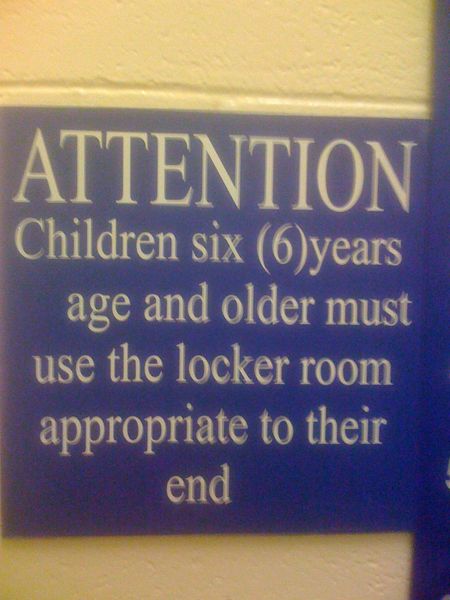

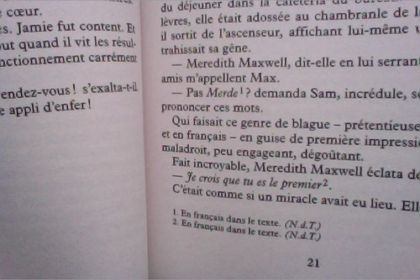
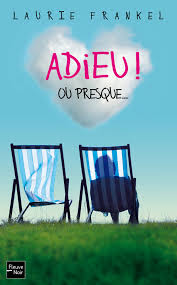

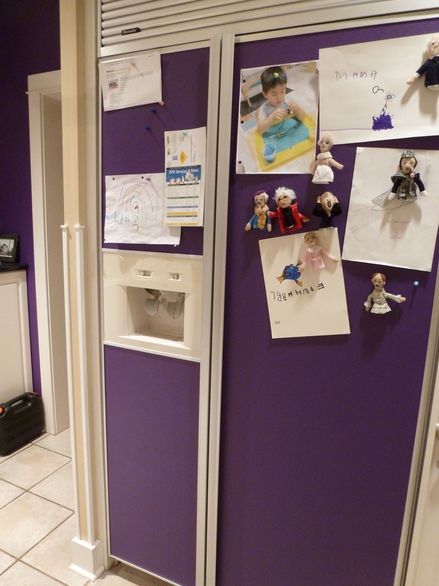
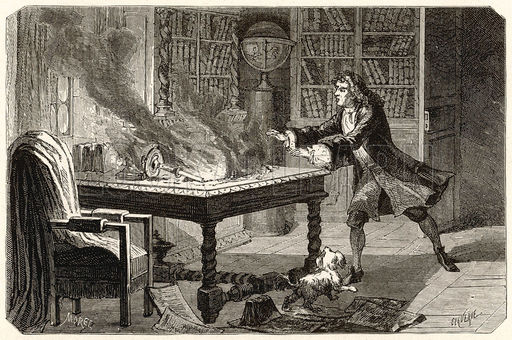
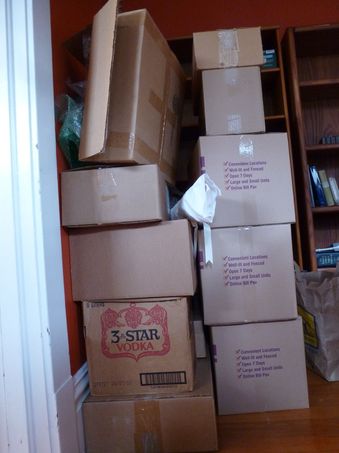
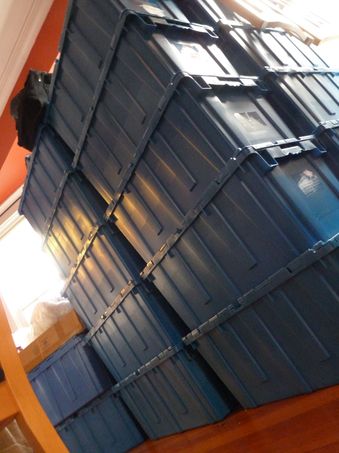

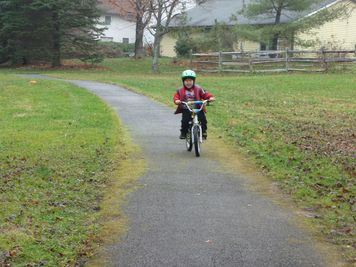
 RSS Feed
RSS Feed